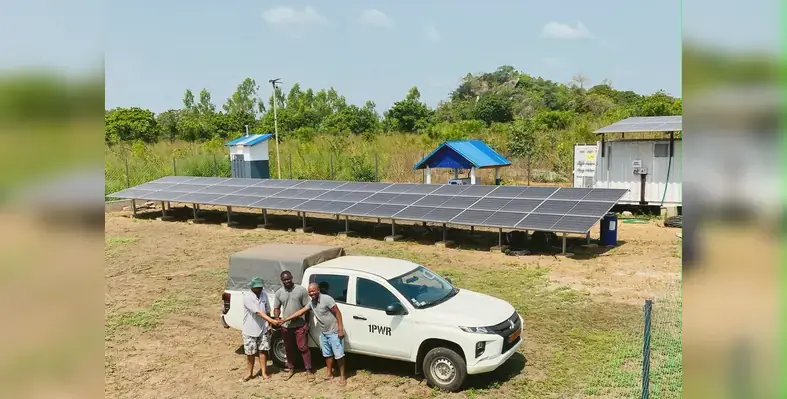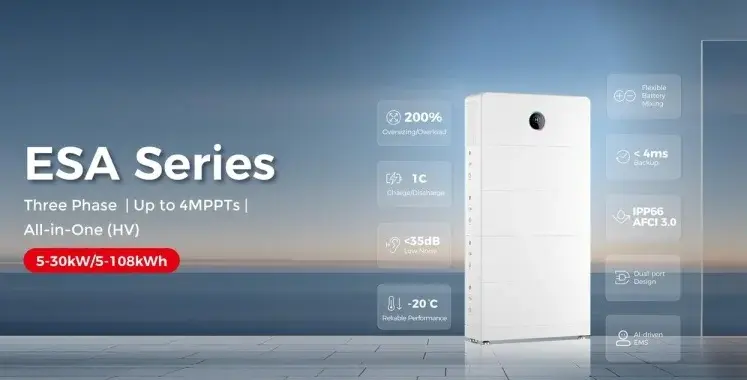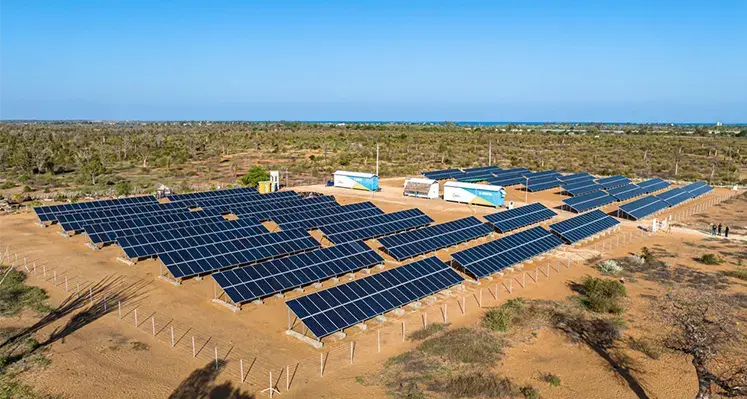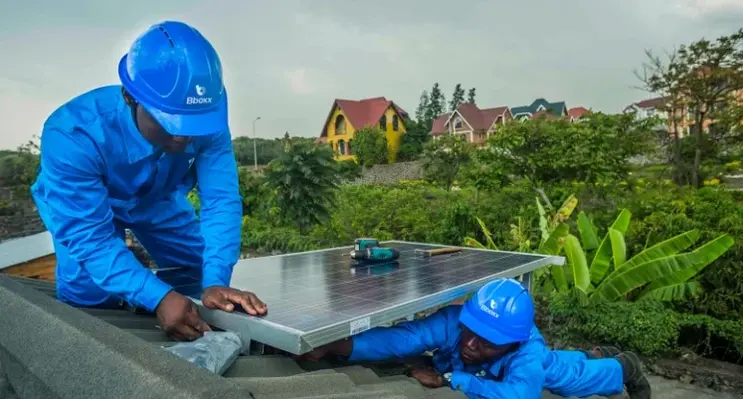
Hybrid microgrids disrupting mining energy economics (Image source: Adobe Stock)
Emissions cuts matter as much as ore grades in an era defined by energy security and climate accountability, according to Etienne le Roux, business development manager – mining at Aggreko.
Here, he examines the value of hybrid microgrids in resolving costs, energy expectations and climate compliance:
Working with mining companies across Africa and other remote regions, Aggreko sees firsthand how hybrid microgrids are reshaping the economics, resilience and climate performance of modern mining operations.
Hybrid power is emerging as one of the fastest environmental, social and governance (ESG) and financing wins in the mining sector. It cuts emissions and costs effectively while mitigating energy security risks, improving an organisation’s bankability and investor appeal.
These hybrid microgrids have the potential to reduce diesel consumption at remote mines by as much as 40-60%, which translates into millions in annual fuel savings and operating costs. And the decarbonisation gains from hybrid microgrids increasingly matter as much as ore grades as lenders, equity investors and stakeholders screen projects and spend on both financial returns and credible transition pathways.
In today’s investment environment, emissions performance has become inseparable from project value. In Africa, mining is entering a decisive new phase because the global energy transition has made it strategically unavoidable to prioritise ESG. The irony is that many of the deposits essential to this transition are isolated, far from national grids, making it challenging for companies to maintain reliable power.
The power systems enabling the supply of future-facing minerals are often anchored in diesel, which has been the default solution for decades as it’s mature, reliable and can be rapidly deployed in modular blocks, allowing for production to start quickly in remote locations.
However, today’s diesel reality carries high costs, volatile fuel logistics and increased scrutiny as a major contributor to Scope 1 emissions. The economics of energy, the tightening expectations of investors and lenders, and the growing influence of downstream buyers who now care how minerals are produced are also putting pressure on companies to change their energy approaches. Energy decisions are no longer operational alone; they are financial, reputational and strategic.
The financial exposure of diesel is also a challenge, particularly when operating off-grid. Every litre has to be trucked, piped or shipped to a site across insecure or poorly maintained transport networks, adding layers of cost and operational risk. Delivered fuel prices at remote EMEA sites frequently exceed international benchmarks once the costs of transport, security and handling are added – the World Bank study found that the cost of diesel and petrol for generators is around $40-$50bn a year at $0.40 to several dollars per kWh in remote locations.
The hybrid microgrid is a strategic step away from this reliance. Designed to integrate solar generation, battery storage and flexible thermal assets under advanced control systems, hybrid microgrids allow mines to displace significant diesel volumes without compromising reliability.
Hybrid solutions have also gained momentum because the economics of renewables have changed measurably over the past few years. Utility-scale solar costs in many parts of Africa have fallen below $0.08 per kWh, with some competitive procurements achieving prices as low as $0.05 per kWh[2][3]. The challenge is no longer cost; it is how to deploy and optimise these assets while maintaining uninterrupted operations.
As a result, this integration quickly becomes an essential part of a mine’s investment profile. Mining’s license to operate increasingly relies on demonstrating that ESG responsibility, and Scope 1 emissions are being adopted into due diligence. Emissions reduction is becoming a signal of management quality, long-term risk control and resilience, which is why mines that reduce diesel dependence are gaining improved access to sustainability-linked finance and preferential terms for offtake agreements.
A mine’s power strategy can strengthen or weaken its financing narrative, and hybrid microgrids offer one of the fastest ways to show measurable progress. Importantly, this transition is not theoretical. Working with mines across Africa, Australia, Europe and the Middle East, Aggreko has deployed hybrid microgrids that deliver immediate cost savings alongside improved reliability and lower emissions.
Aggreko has demonstrated savings of up to 40% compared with diesel-only systems, offering mines both cost stability and decarbonisation within credible and reliable energy infrastructure. With advanced controls and built-in redundancy, hybrid microgrids can achieve more than 99.9% uptime. For emissions, a typical mid-sized mine can save 50,000–100,000 tonnes of CO₂ annually, improving its carbon footprint in a way that is visible and auditable.
This transition isn’t frictionless, however. Financial and capital allocation constraints, regulatory complexities, security and supply chain risks, as well as limited expertise to manage hybrid systems, make it a careful and strategic investment. This is where working with an experienced energy partner becomes critical.
Aggreko is a practical partner for mines trying to navigate this move, offering flexible commercial models such as PPAs and OPEX-led structures alongside rapid deployment with modular systems and the ability to optimise thermal assets while layering in solar and battery storage. Aggreko is the step between, bringing the expertise and the solutions into a simplified solution that makes it easier and faster for companies to benefit.
This is the pivot facing Africa’s mining sector now. Mines can remain dependent on high-cost, carbon-intensive diesel generation, or transition to hybrid microgrids that provide reliable, low-carbon energy at lower cost. And because hybrid microgrids simultaneously address cost, emissions, reliability and investor confidence, they represent one of the few interventions capable of unlocking multiple benefits at once, rather than incrementally.
Read more:
Uganda's extractives industry: the electrification imperative
Sany commences Zimbabwe mining solar power project
Powering sustainable dairy production in South Africa
















